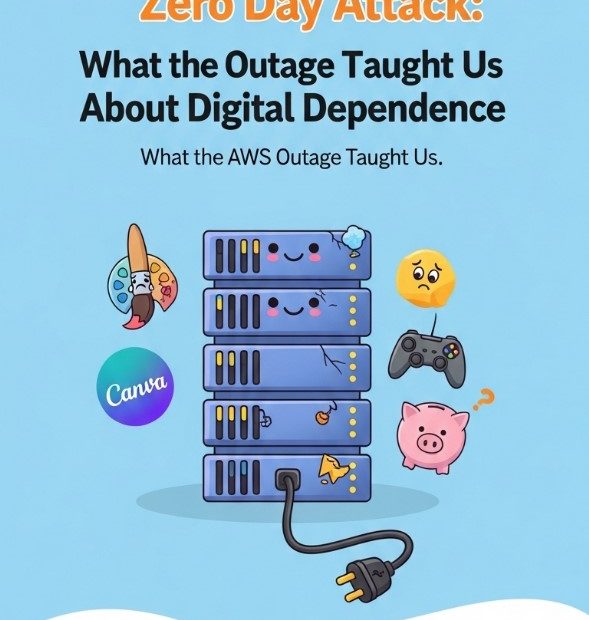When the Internet Crashes: What the AWS Outage Taught Us About Online Dependence
It’s easy to think of the internet as this untouchable, ever-present force, but the truth is far more fragile. Most of what we do online, streaming, learning, gaming, communicating runs on invisible systems powered by companies like Amazon, Google, and Microsoft. In fact, these three control more than 60% of the global cloud infrastructure. So when one of them goes down, it’s not just a glitch, it’s a global event.
For a few hours, millions of people couldn’t work, play, or communicate as usual. Businesses lost transactions. Creators couldn’t access their files. Even financial platforms like PayPal’s Venmo and Chime faced disruptions. It was a reminder that the cloud, though powerful, isn’t infallible.
But here’s the silver lining: events like these open our eyes to the reality of digital dependency and why cyber awareness matters more than ever. Being cyber-aware isn’t just about avoiding scams or setting strong passwords; it’s about understanding the systems we rely on and preparing for moments when technology fails.
At Smart Teacher Platform, we believe every parent, student, and professional should understand the basics of digital safety and resilience. That starts with simple but powerful steps, knowing where your data lives, keeping backups, and protecting your online identity with strong, unique passwords and two-factor authentication (2FA). Because while we can’t control when a tech giant has a bad day, we can control how prepared we are when it happens.
This wasn’t just a tech story. It was a life lesson in digital awareness, one that affects us all, from classrooms to boardrooms, from designers to gamers. The more we understand the systems that shape our world, the better we can navigate them safely, smartly, and securely.
